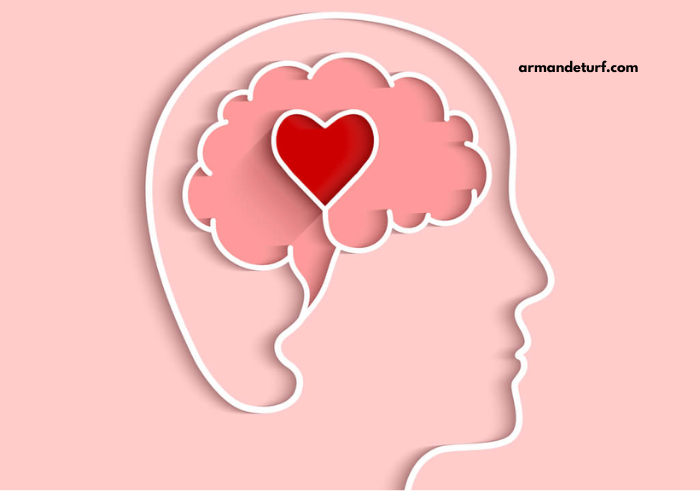5-Step Guide to Boost Your Mental Health
Mental health is just as essential as physical health in leading a fulfilling, balanced life. In today’s fast-paced world, stress, anxiety, and emotional fatigue have become all too common. Prioritizing your mental well-being isn’t a luxury — it’s a necessity. This comprehensive 5-step guide will help you strengthen your mental health using practical, sustainable methods that can be easily integrated into your daily routine.
Why Mental Health Matters
Mental health influences how we think, feel, and act. It affects our relationships, productivity, and ability to handle stress. A healthy mind enables clear thinking, effective decision-making, emotional resilience, and a deeper sense of self-awareness. Ignoring mental health can lead to burnout, depression, chronic anxiety, and physical health issues.
By taking a proactive approach, you can significantly improve your emotional well-being, enhance focus, and increase your overall quality of life.
Step 1: Cultivate Positive Habits for a Healthier Mind
Embrace a Consistent Sleep Routine
Sleep is the foundation of good mental health. Lack of quality sleep contributes to mood swings, irritability, and decreased cognitive function. Adults should aim for 7–9 hours of sleep every night.
Tips to improve sleep hygiene:
-
Set a consistent sleep and wake time, even on weekends
-
Avoid screens (phones, tablets, laptops) at least one hour before bed
-
Keep your bedroom cool, dark, and quiet
-
Avoid caffeine and alcohol in the evening
Prioritize Physical Activity
Exercise releases endorphins — your brain’s natural mood boosters. Regular physical activity has been shown to reduce symptoms of depression, anxiety, and stress.
Incorporate movement into your day:
-
Take a brisk 30-minute walk daily
-
Join a fitness class or yoga group
-
Try stretching or meditation-based movement in the morning
Physical health and mental health are deeply interconnected — taking care of your body directly benefits your mind.
Step 2: Manage Stress Effectively
Practice Mindfulness and Meditation
Mindfulness helps you become aware of the present moment, breaking the cycle of overthinking and rumination. Meditation, even for 10 minutes a day, can dramatically lower cortisol (the stress hormone) and improve your sense of calm.
Simple ways to practice mindfulness:
-
Try guided meditations via apps like Headspace or Calm
-
Focus on your breathing for 3–5 minutes daily
-
Do a mindful body scan before sleep
Organize Your Day to Reduce Overwhelm
Time management reduces the stress of unfinished tasks and looming deadlines. A clear schedule prevents burnout and improves mental clarity.
Time management hacks:
-
Use a digital planner or productivity app
-
Break large tasks into smaller, manageable steps
-
Prioritize using the Eisenhower Matrix (urgent vs. important)
Reducing mental clutter through structured planning brings peace of mind and a sense of accomplishment.
Step 3: Foster Supportive Social Connections
Build Meaningful Relationships
Strong social bonds are a key component of emotional well-being. Whether through family, friends, or community groups, regular interaction can ease loneliness and improve self-worth.
Ways to build social support:
-
Make time for regular phone or video calls with loved ones
-
Attend community events, clubs, or support groups
-
Practice active listening and empathy in conversations
Seek Professional Help When Needed
There’s no shame in asking for help. Therapy can provide you with the tools to navigate emotional challenges, overcome trauma, or simply gain a deeper understanding of yourself.
Types of mental health support:
-
Licensed psychologists and counselors
-
Cognitive Behavioral Therapy (CBT) for anxiety and depression
-
Online therapy platforms like BetterHelp or Talkspace
Remember, seeking help is a sign of strength — not weakness.
Step 4: Nourish Your Mind and Body with Healthy Choices
Eat a Brain-Boosting Diet
The gut-brain connection plays a huge role in mental health. A nutrient-rich diet can significantly impact mood, energy, and cognitive function.
Foods that support mental well-being:
-
Fatty fish like salmon (rich in omega-3s)
-
Leafy greens and berries (antioxidants)
-
Whole grains and legumes (slow-releasing energy)
-
Fermented foods like yogurt and kimchi (promote gut health)
Avoid excessive sugar, caffeine, and processed foods, which can destabilize mood and energy levels.
Stay Hydrated and Avoid Harmful Substances
Dehydration can cause fatigue and difficulty concentrating. Aim for 8–10 glasses of water daily. Limit alcohol, nicotine, and recreational drugs, as they can worsen anxiety and depression over time.
Step 5: Engage in Activities That Bring You Joy and Purpose
Discover Your Passions and Hobbies
Doing things you love triggers dopamine — the “feel good” neurotransmitter. Creative outlets and hobbies can reduce stress, provide a sense of accomplishment, and promote a balanced lifestyle.
Examples of joy-inducing activities:
-
Painting, writing, or playing a musical instrument
-
Gardening, hiking, or exploring nature
-
Volunteering or community service
Set Goals That Inspire You
Having a sense of direction boosts motivation and self-confidence. Setting short and long-term goals can provide structure and meaning to your daily life.
Goal-setting strategies:
-
Use the SMART framework (Specific, Measurable, Achievable, Relevant, Time-bound)
-
Celebrate small wins to stay motivated
-
Reflect regularly on your progress
Living with intention enhances emotional resilience and promotes a sense of fulfillment.
Additional Mental Health Tips for Everyday Life
Limit Screen Time and Social Media Exposure
Overexposure to screens and social media can lead to anxiety, comparison, and sleep disruption. Designate screen-free zones and time blocks to stay grounded in reality.
Practice Gratitude Daily
Gratitude rewires your brain to focus on the positive. A simple daily journal where you note 3 things you’re grateful for can shift your mindset and improve emotional health.
Declutter Your Environment
A tidy space encourages a tidy mind. Keeping your physical environment clean and organized can ease anxiety and help you feel more in control.
The Science Behind These Steps
Mental health is governed by a complex interplay of biological, psychological, and environmental factors. Here’s how these steps align with scientific research:
-
Sleep and exercise regulate neurotransmitters like serotonin and dopamine.
-
Mindfulness practices reduce amygdala activity (the brain’s fear center).
-
Healthy diets influence the microbiome, which affects mood and cognition.
-
Strong social connections trigger the release of oxytocin, the bonding hormone.
-
Goal-setting and hobbies activate the prefrontal cortex, enhancing focus and satisfaction.
By combining these strategies, you not only treat symptoms but build a solid foundation for lifelong mental resilience.
When to Seek Help Immediately
If you or someone you know is experiencing the following symptoms, it’s important to seek professional or emergency help immediately:
-
Persistent sadness or hopelessness
-
Withdrawal from friends and family
-
Thoughts of self-harm or suicide
-
Substance abuse or dangerous behavior
-
Sudden mood changes or hallucinations
Mental health support is available and accessible — you are not alone.
Final Thoughts: Your Mental Health Journey Starts Today
Improving your mental health is a journey, not a destination. The 5-step guide — cultivating healthy habits, managing stress, building connections, nourishing your body, and engaging in meaningful activities — provides a holistic framework to help you thrive emotionally, mentally, and spiritually.
It’s okay to start small. Pick one step and gradually build from there. Every effort you make is a step toward a happier, more balanced life.
Your mental well-being is one of the most valuable investments you can make — because a healthy mind creates a healthy life.
Frequently Asked Questions (FAQs)
Q1: How long does it take to see results from mental health improvement practices?
A: While results vary by individual, most people notice small changes in mood, clarity, and energy within 2–4 weeks of consistent practice.
Q2: Can diet alone improve my mental health?
A: While diet plays a key role, combining nutrition with sleep, exercise, therapy, and stress management yields the best results.
Q3: Are there mobile apps that support mental health?
A: Yes! Apps like Calm, Insight Timer, Woebot, and Moodfit provide guided meditation, journaling, mood tracking, and coping strategies.



